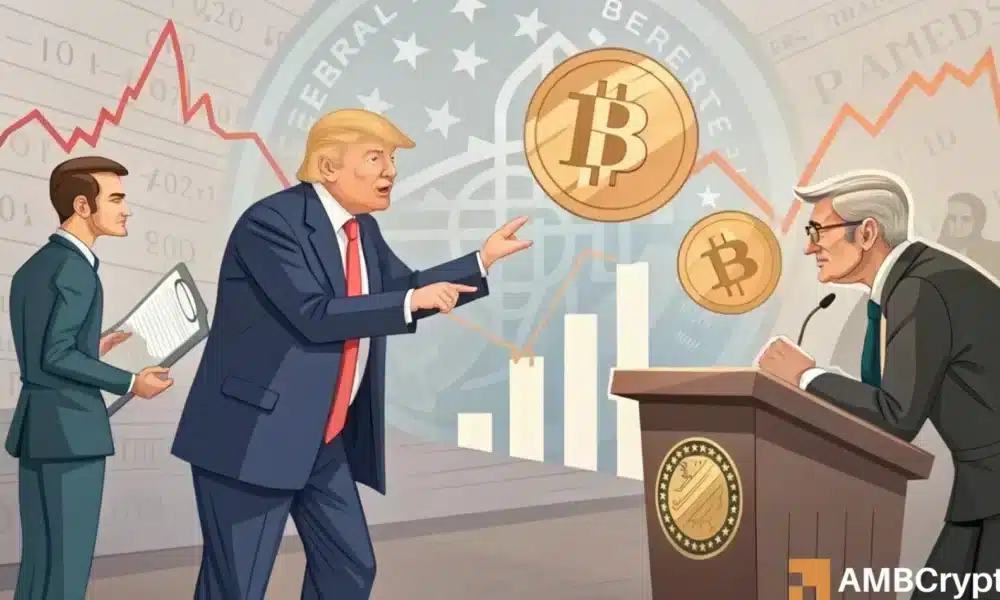Following Donald Trump’s win as the 47th President of the United States, the crypto community is hopeful about his earlier promise to establish a strategic Bitcoin reserve.
Addressing attendees at the Bitcoin [BTC] 2024 event in Nashville, Trump reiterated his dedication to this plan, sparking excitement among cryptocurrency enthusiasts.
Could the Fed Pose a Challenge to Trump’s Bitcoin Reserve Proposal?
However, Jerome Powell’s recent remarks during a media briefing highlighted that the Federal Reserve is not considering participating in any governmental effort to amass Bitcoin.
Previously, Powell mentioned,
“We are prohibited from holding Bitcoin. The Federal Reserve Act dictates our allowable possessions, and we are not seeking any alterations.”
His statement post the monetary policy session introduced uncertainty in the market, causing BTC’s value to dip from its recent peaks.
Despite this, the latest update shows BTC trading at $98,703.53, indicating a 5.18% climb in the past 24 hours, as per data from CoinMarketCap.
Subsequent to Powell’s statements, the probability of a Bitcoin Strategic Reserve, as per prediction platform Polymarket, has continued to decrease.
Initially peaking at 40% on December 18th, the likelihood has now dropped to 32%, signifying a diminished chance.
Correspondingly, the collective market capitalization of cryptocurrencies has also witnessed a notable drop, shedding around 7.5%, further denoting market hesitancy.
What Lies Ahead?
Hence, while the Federal Reserve upholds substantial independence in monetary policies, it does not wield veto authority over the establishment of a Bitcoin Strategic Reserve (BSR).
Therefore, if the Trump administration decides to push ahead with this plan, the most effective route would likely involve issuing an executive decree upon inauguration, instructing the U.S. Treasury Department to leverage the Exchange Stabilization Fund (ESF) for direct BTC acquisitions.
To wrap up, whether through executive action or legislative backing, forming a strategic Bitcoin reserve seems to necessitate direction from the Treasury Department rather than the Federal Reserve.

